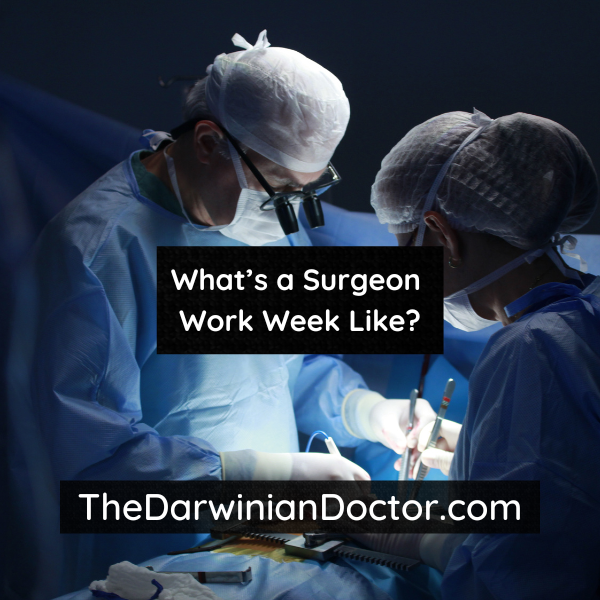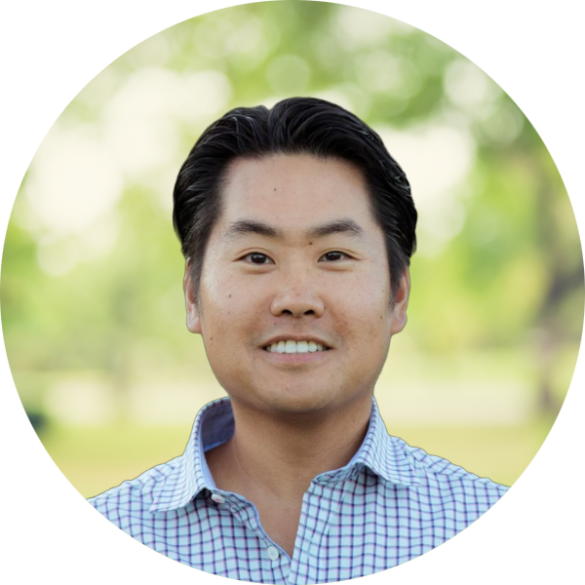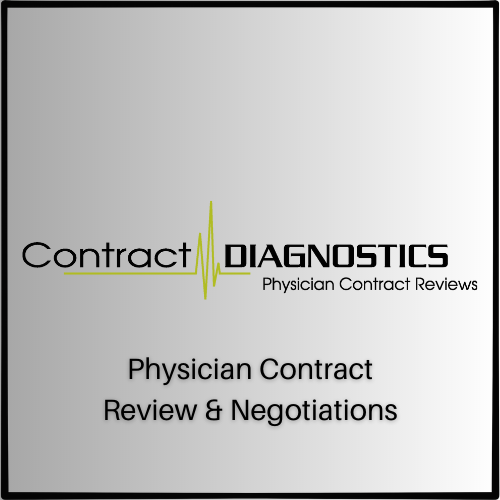Today I talk with a general surgery intern about a typical surgeon work week: what is it like and was it worth the training?

I recently had a follow up conversation with a former medical student who I mentored during her last year of medical school. At the time of our last conversation, she was agonizing about how to rank a few residency programs in the Los Angeles area.
She matched at her first choice!
She ended up matching at her first choice, which is a large university program with an excellent reputation. She’s now most of the way through her intern year of general surgery. Although she’s still 5 years away from graduation, she reached out to me recently for my impression about life “on the other side” of residency.
Intern year can be demoralizing
She admitted to suffering from the drudgery of intern year, and was hoping for a glimpse of the future for inspiration. Intern year is never easy anywhere, but I know that her program is particularly grueling.
After some small talk, I was surprised when the conversation turned to far more basic elements of attending life, like, “What do you actually do during the week?”
Her questions reminded me of my own naivete during my pre-med through residency years. In college, I had only a vague sense of what physicians actually do on a day to day basis. This understanding increased via glimpses of physicians during shadowing and then clerkships in medical school. But even during residency, my picture of physician life after training was by no means complete.
Like many things in life, you can only really know what it’s like by doing it for a few months.
So during our chat, I tried to pierce the veil for her.
Want to know what happened to this surgery intern? Check out this post: Quitting residency after intern year (Life after residency series)
Note: This interview’s a little backwards. She’s interviewing me! Her questions are below in bold. My responses follow.
What’s a surgeon work week like?
I’m overall much happier since finishing residency and getting a real job. I actually enjoy probably about 75% of what I’m doing on a minute to minute basis. This is a sharp contrast to residency, where because of stuff like endless rounding and overnight call, that number was probably closer to 20%.
Even as an employed physician, I have much more control over my day to day. As long as I’m meeting a baseline level of productivity, I have a lot of input over the composition of my workday and vacation schedule. In general, my weeks are evenly split between seeing patients in clinic (Clinic days), doing surgery (OR days), and being available for consults and emergencies (On-call days).
I think control and autonomy in one’s job goes a long way towards creating job satisfaction. It’s in short supply during residency, but goes way up immediately after you finish training.
What else makes you happy about being a physician?
Patient gratitude is huge. As a surgeon, you can take a patient with a debilitating problem, like appendicitis or kidney stones, intervene, and almost immediately bring them relief. Occasionally, I’ll see a patient for their postop appointment and they’ll literally grab my hand with tears in their eyes and whisper “Thank you.” This really happens! Whenever it does, I experience such a big dopamine rush.
I’m sure there are parallels in the non surgical specialties as well, but happy patients definitely make me happy as well. (The opposite is true as well, but whaddya gonna do, eh?)
Is it worth all the training?
I’m early in my career, so only time will tell. But I’m grateful for the security and high income of being a physician. I have a lot of debt, but I make enough to pay it off while also building a solid financial future for my family. Even when I’m struggling with a tough surgery (or a tougher patient), the income really does make it more bearable.
Thinking back to residency, the low salary made everything worse. I remember having the feeling that there was just no upside to any extra pain that I endured.
There’s rarely any educational benefit from seeing that consult in the ER at 3AM. Usually, the only thing you gain from that experience is exhaustion and bitterness. If I was being paid extra to see that consult, it still would have sucked, but it would have sucked less.
At least as an attending, you’ll generally get paid more for your midnight consults to the ER.
Are you going to work until you die?
I definitely have colleagues who will happily keep on seeing patients past the traditional retirement age of 65 years. There is a great feeling of satisfaction and personal worth one can get by practicing medicine. It doesn’t magically go away just because you cross over into retirement age.
I do think that as I achieve my goal of financial independence, I’ll rebalance my schedule so I have more time to devote to family and other interests. Any worthy pursuit can become onerous if it is at the detriment of other goals and dreams. I want to get to a financial position where I can afford to work less, depending on how much joy medicine still brings.
Conclusion
I hope this chat helped you picture a little about what comes after residency (at least for surgeons). The surgeon work week is pretty typical across all surgical subspecialties. It’ll be different if you’re not doing procedures or surgery after training, of course.
Want to know what happened to this surgery intern? Check out this post: Quitting residency after intern year (Life after residency series)
What has surprised you about life as a physician after training? Comment below!
Want to support the blog?
- Join our investor club at Cereus Real Estate
- Visit my Recommendations page
- Check out my wife’s food blog: Eat Dessert First
- Stay at our luxury short term rentals
- Check out my TikTok channel
- Follow me on Instagram
- Follow me on YouTube
- Contact me with questions
Perhaps you’re more of a Facebook type?
Are you a physician, spouse, or professional and you’re interested in using Real Estate to gain financial freedom? Join us in our Facebook group and accelerate your journey!









2 comments
As a retired physician, you gain a sense of history. In my case I live in a small 3 high school kind of city and my hospital was the county hospital. I was anesthesia and pain management and over the course I did about 25,000 anesthetics and 25,000 pain procedures across 30 years of practice. Many of course were repeat patients, but none the less you develop a history with people. You take care of Mom and the whole family knows who you are. It results to a kind of community integration where your service becomes known and trusted, and there is a good feeling about making some kind of difference in peoples lives. I went to a party at my Church once and looked around the room and realized I had treated 48/50 of the people present one time or another including the kids since I did their mom’s epidurals. I was standing in line at the UPS store and a girl a few people back was whispering to her friend “that guy gave em my epidural” She was a 3 AM patient about 2 weeks before. I glanced back and she said “remember me?’ and I shot back “don’t know turn around” and we had a good laugh. I walked into a Walgreens and rounded a corner and there was a guy staring at 2 bottles of tylenol. One 3 bux cheaper than the other. He caught me and asked which one? I didn’t know this guy but probably took care of his mom sometime or another. I dutifully looked at the bottles chose the cheaper of the 2 and said “this one”. Those are the kind of intangibles associated with this job but you have to hang around long enough to create such a history
Gasem, it sounds like you had a long and fulfilling career, with the special personal connections that can only come from the practice of medicine. I can only hope I’ll have a similar career.
— TDD